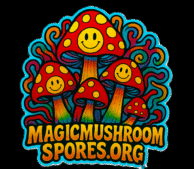Scientific Research on Psilocybin and Neuroplasticity
Neuroplasticity is the brain’s ability to rewire and adapt by forming new neural connections.
It’s how we learn new skills, recover from injuries, and build resilience against stress.
In recent years, scientists have been studying how psilocybin—the naturally occurring compound found in certain mushrooms—might help enhance this process.
Scientific Research on Psilocybin and Neuroplasticity
Modern neuroscience has taken a strong interest in psychedelic compounds, and psilocybin is at the top of the list.
Several studies have shown that psilocybin may promote both structural and functional changes in the brain.
Laboratory studies using brain imaging and neuron growth tracking suggest psilocybin increases the growth of dendritic spines, the small extensions of nerve cells that help transmit signals.
This growth is associated with better communication between brain cells.
Psilocybin has also been shown to temporarily disrupt rigid brain networks like the Default Mode Network (DMN).
By quieting overactive brain loops linked with depression and anxiety, the brain can form new, healthier pathways.
Early human trials have demonstrated that a single guided psilocybin session can lead to lasting improvements in mood, emotional regulation, and openness.
Researchers believe these changes are directly connected to enhanced neuroplasticity.
Why Does This Matter?
For people struggling with depression, PTSD, or addiction, the brain can get “stuck” in negative loops.
Psilocybin’s ability to increase neuroplasticity may give the brain a chance to “reset” and adopt healthier thought patterns.
While research is still in progress, the early results are promising.
Looking Ahead
The scientific community is still unlocking the full picture of psilocybin’s impact on neuroplasticity.
Clinical trials are expanding worldwide, and the results could shape the future of mental health treatment.
Disclaimer:
MagicMushroomSpores.org provides spores for microscopy and educational purposes only.
We do not sell products for consumption.
All information is for educational purposes and should not be considered medical advice.
